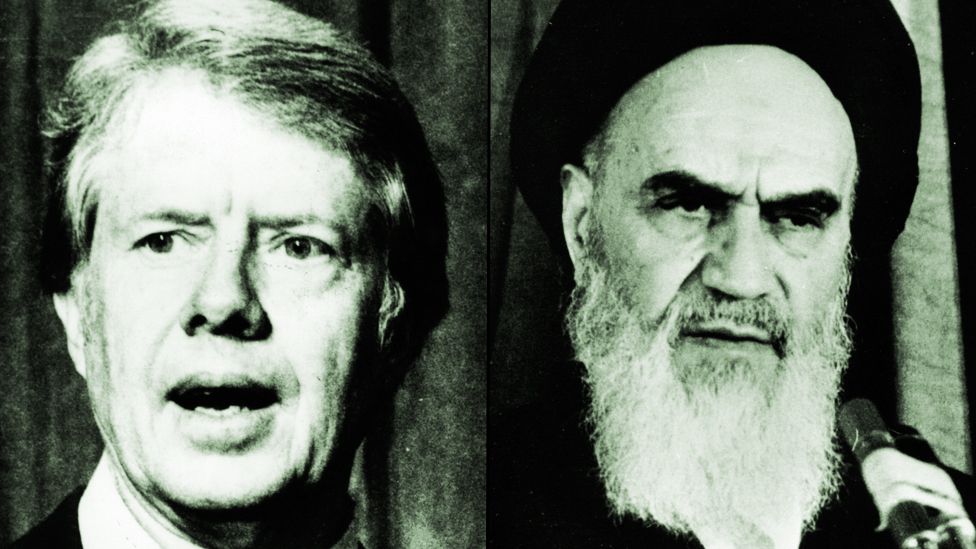London- Confidential documents recently released by the CIA revealed details on what had happened in the few last weeks preceding Mohammad Reza Pahlavi’s overthrow. The documents expose the works of the White House and U.S. embassy in Tehran.
Records released by BBC show that Ayatollah Khomeini had entered direct negotiations with the U.S. administration on January 15, 1979. His negotiations with the Carter administration, taking place in Khomeini’s exile in the suburbs of Paris, lasted for two weeks.
The concocted concessions were taken in preparation for Khomeini to head back to Tehran, announcing Vilayat-e Faqih, otherwise known by the Guardianship of the Islamic Jurist.
Racing time, the U.S. embassy in Tehran was logged for coordinating between Khomeini’s right hands, Mehdi Bazargan and Mohammad Beheshti, along with both the secret service SAVAK and army generals at the time.
SAVAK (Organization of Intelligence and National Security) was the secret police, domestic security and intelligence service established by Iran’s Mohammad Reza Shah with the help of the United States’ CIA.
Furthermore the documents reveal details of a confidential meeting held between Carter and White House big shots, during which Pahlavi’s fall was settled.
At the meeting, Former National Security Advisor Zbigniew Brzezinski objected to taking Pahlavi down. However, former United States Secretary of State Cyrus Vance and former Director of Central Intelligence Stansfield Turner were successful in convincing President Carter with the necessity of pulling Pahlavi out and changing the reigns in Iran.
Former U.S. Vice President Walter Mondale then made it clear that Pahlavi must be removed in a way which could not be traced back to U.S. doing.
Should the BBC story be proven true, the Iranian revolution’s history would be dramatically rewritten by the facts displayed in the documents. It would prove Khomeini’s contradictions. “The Great Satan”, Khomeini would call the U.S. despite that it was the Carter administration which supported his mission against Pahlavi. Moreover, the BBC documents are being leaked amid details on the U.S. administration censoring information pertaining to the nuclear deal.
But the documents reveal that Khomeini was far more engaged with the US than either government has ever admitted. Far from defying America, he courted the Carter administration, sending quiet signals that he wanted a dialogue and then portraying a potential Islamic Republic as acquiescent to U.S. interests, BBC reported.
According to the documents published by BBC, Carter was not afraid of losing his ally after Pahlavi’s leave; he had considered Iran a source for stability.
At the meetings, Khomeini suggested that if President Jimmy Carter could use his influence on the military to clear the way for his takeover, he would calm the nation. Stability could be restored; America’s interests and citizens in Iran would be protected.
At the time, the Iranian scene was short to chaotic. Protesters clashed with troops, shops were shut, public services suspended. Meanwhile, labor strikes had all but halted the flow of oil, jeopardizing a vital Western interest.
Persuaded by Carter, Iran’s ruler Pahlavi, also known as the Shah, had finally departed on a “vacation” abroad, leaving behind an unpopular prime minister and a disordered military – a force of 400,000 men with heavy dependence on American arms and advice.
